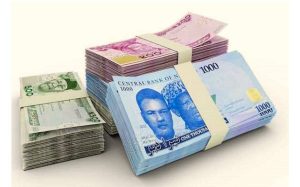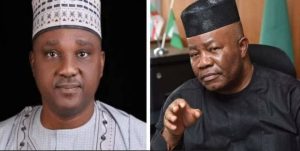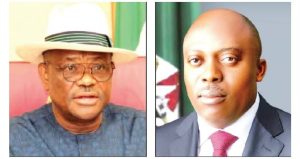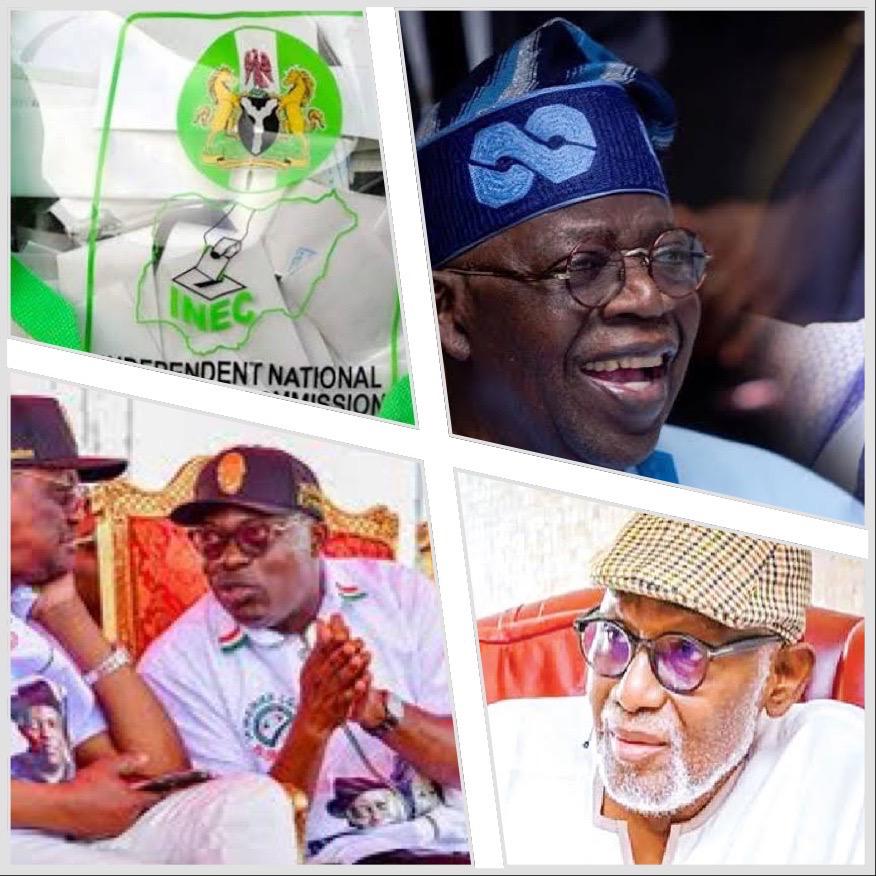By Halimah Olamide
In few hours from now, 2023 would become history as the world would embrace and celebrate a new year 2024.
In Nigeria, the political ring has been one of an interesting mix of the good the bad and the ugly.
The year began with election fever just as the preceding 2022 ended with tensions concomitant with the battle for the topmost job, the presidency, governorship (either those seeking re-election or first term seekers), and then of course, the National and State legislative elections.
The year began with a continuation of the intrigues, calculations and preparations for the electoral processes that would lead to the emergence of a successor to then incumbent President Muhammadu Buhari.
It was a confluence of diverse issues that influenced the country’s political landscape. Here are some key factors that shaped Nigerian politics during the year:
A NAIRA REDESIGN CRISIS:

It was not the first time Nigeria was changing its currency. But the process of redesigning the Naira which began in 2022 inevitably carried with it some clear tinge of political manouvering.
When the then Governor of the Central Bank of Nigeria, Godwin Emefiele, announced that the apex bank was set to change the currency, not a few read meanings into the decision as a plot to make some people who had relied on monetary inducement as their only strategy for winning elections.
If that remained a subject of conjecture, it took one of the leading presidential seat contenders, Bola Tinubu, to remove the veil in Abeokuta, during one of his campaigns.
“If you like, redesign the Naira, we shall vote and we shall win,” Tinubu had heightened the stake when he declared bravely before his supporters.
His outburst at the time was seen as a direct attack on President Buhari, Emefiele and others believed to be members of a cabal working against the emergence of the former governor of Lagos state as the next president of Nigeria.
ELECTIONS, VIOLENCE, DISPUTES

As an election, year, the beginning of 2023 saw a focus on electoral processes and governance, with much emphasis on efforts to enhance transparency and credibility in elections.
Organisations such as the Centre for Democracy and Development, Fix Politics, YIAGA Africa, Transparency International, Connected Developments and a host of others had demonstrated preparedness to impact on the build up to and outcome of the 2023 general elections.
Therefore, their discussions focused on electoral reforms, voter education, and the use of technology aimed to strengthen the democratic foundation of Nigeria.
The conduct of the elections itself was a major occurrence in the outgoing year. The outcome was a mixed bag with European Union and some other foreign observer missions, judging it as less transparent and credible.
Though 18 political parties registered to field candidates in the 2023 presidential election, the All progressive Congress, Peoples Democratic Party, the Labour Party and the New Nigerian Peoples Party showed some high level of active participation.
Tinubu, Alhaji Atiku Abubakar, Mr. Peter Obi and Engr Rabiu Kwankwaso were the focus of all eyes on the presidential poll which saw Tinubu being declared as the winner.
Though the electoral disputes have been concluded at the Supreme Court in favour of Tinubu, the defeated still hold on tenaciously to the conviction that the electoral process was an unfair one and one that awarded victory to an undeserving candidate.
The Independent National Electoral Commission insisted it conducted one of the most acceptable exercises while it set out to discipline one of its erring officers, the Resident Electoral Commissioner in Adamawa, Barr Ari Hudu, who was accused of declaring a winner in the governorship election when the exercise had not been concluded.
The conclusion of the electoral process in March led to the emergence of President Bola Tinubu of the All Progressive Congress and his vice, Kashim Shettima, 28 new and returning governors, a new and returning members of the senate, House of Representatives and state Houses of Assembly.
AKPABIO, ABASS AND FACE OF THE 10TH NATIONAL ASSEMBLY

The constitution of the 10th National Assembly saw the emergence of a former Governor of Akwa Ibom State and former Minister of the Niger Dekta, Godswill Akpabio as the Senate President while Dr. Tajudeen Abass emerged as the Speaker of the House of Representatives.
In what could be concluded was the crowning of the president’s men in vital legislative positions, Akpabio in the senate is supported by other Tinubu’s agelong loyalists to complete the circle of those who are not likely to constitute checks on the powers of the president.
While Opeyemi Bamidele, a former Commissioner under Tinubu has emerged as the Majority Leader of the Senate, Adeola Olamilekan Solomon popularly called Yayi is the senate’s chairman, Committee on Finance.
The configuration of the National Assembly is seen as one that rarely can constitute opposition to Tinubu’s whims and caprices. At the 61st birthday colloquium in honour of Akpabio two weeks ago, Tinubu confirmed the conviction that his success will be determined by the level of cooperation that he is sure getting from the National Assembly.
WIKE AND FUBARA: BATTLE OF THE GODFATHER AND GODSON

The emergence of Mr. Siminalayi Fubara as the next governor of Rivers state was seen as part of the tenacity of the current Minister of the FCT, Nyesom Wike to have his way. Wike had vowed that nothing would stop him from installing his successor, a promise he fulfilled.
However, months after his emergence as the governor, things seem to have degenerated between Wike and Fubara culminating in a tense political atmosphere in the state.
Highlights of this tension include the September 30 burning of a section of the state House of Assembly, the assault on the Governor by security men, the protests for and against Fubara and Wike in the state by loyalists and to peak it all, the pulling down of the state House of Assembly on the excuse that a section of it has gone bad as a result of the September attacks.
As it stands, though there have been interventions by leaders from the state, the resolution by the president, Tinubu seems to be the only anchor of the seeming calmness in the state as each party watches what next in the game of wits between Wike and Fubara.
However, what appears to be some calmness in the state now bears all semblance of the peace of the graveyard. Watchers of the event in the state believe the real issues will rare their heads when the time comes for Fubara to seek re-election. All fingers crossed.
AND GOVERNOR AKEREDOLU BOWS OUT

Governor Rotimi Akeredolu, SAN bowed out on Wednesday December 27, 2023.
His death put an end to a protracted political crisis in the state over who steers the ship of state in the face of his absence because of a medical condition.
Aketi, as he was called, became a subject of attention when his illness became noticeable leading to medical help in Germany.
A governor who wrote to the state Assembly informing of a three-week medical leave ended up spending three months returning from Germany in September 2023.
But his return was more of physical presence in Nigeria without the ability to carry on with the duty of governance.
The refusal to transmit power to his deputy, Lucky Ayedatiwa, had precipitated a wave of political crisis in the state. But it was a matter of time for Arakunrin to do the needful as it became obvious his health was no longer able to carry on with anything demanding rigour.
His death has paved the way for a ‘lucky’ Orimisan Ayedatiwa to now emerge as the new governor of the state.


